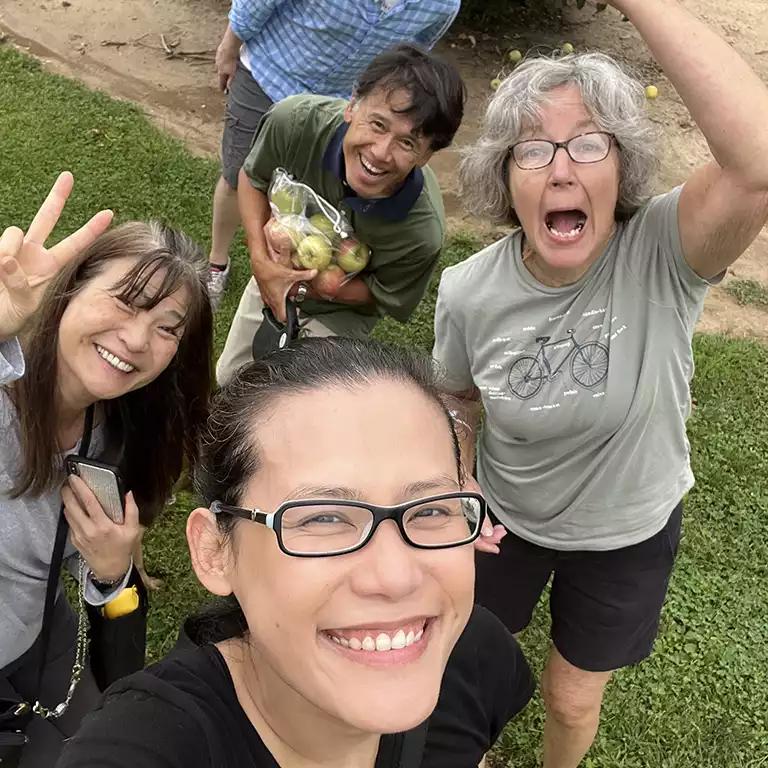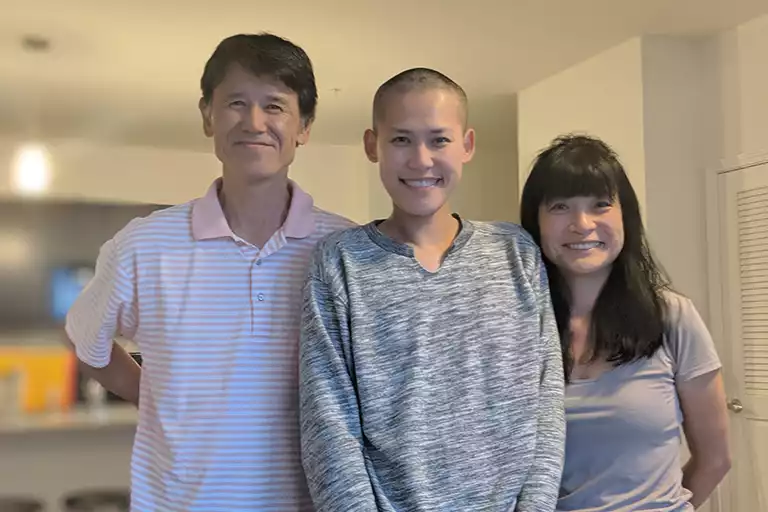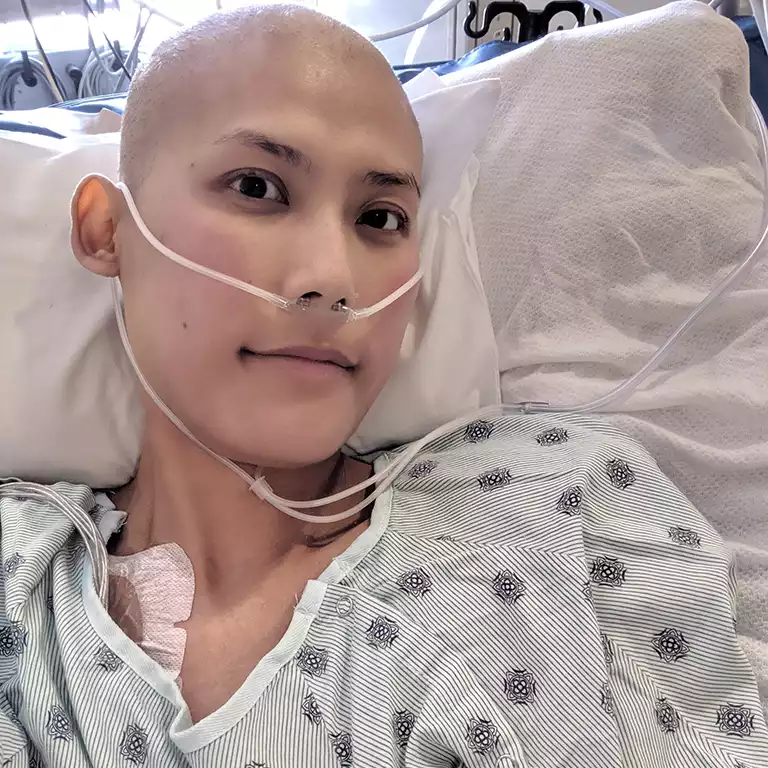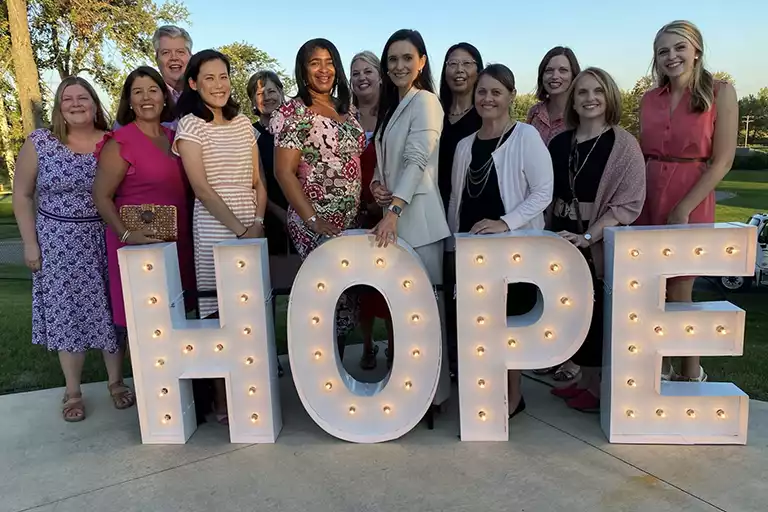September 26, 2024
The Journeys Ahead

Five years ago, 35-year-old Mika was coaching students on how to succeed in college at what’s now IU Indianapolis and making plans for a trip out West.
Then, almost by accident, she noticed a lump in one of her breasts. “It was a routine thing and I thought, ‘That’s kind of strange. That wasn’t there before.’”
Mika had no history of cancer in her family. Still, her primary care doctor described it as a “significant lump.” To be safe, she ordered a mammogram and a biopsy.
Those tests revealed a clear diagnosis: she had Stage III breast cancer. “They were like, ‘This is pretty serious. We need you to start treatment right away. You’re not going on this trip you were planning.”
Mika had the most common type of breast cancer – estrogen positive, which uses the hormone estrogen as fuel to grow, said her oncologist, Tarah Ballinger, MD, the Vera Bradley Foundation Scholar in Breast Cancer Research at the IU Simon Comprehensive Cancer Center.

Additional genetic testing revealed Mika had a genetic mutation, PALB2, that meant she had been predisposed to developing breast cancer. Like the better-known mutations BRCA 1 or 2, it meant one of her parents must have had the mutation and any siblings (she had none) would have a 50% chance of inheriting it. It prompted the need for “cascade” testing – genetic assessments of others in the family.
That testing revealed that Mika’s mother had the PALB2 gene, prompting closer monitoring of her health. Last year, she was diagnosed with breast cancer – but at an early stage, and her prognosis is excellent.
For Mika, the last five years – she’s now 41 – haven’t been easy, and there are more challenges ahead.

Following her diagnosis, she began chemotherapy to shrink the tumor before surgery. But after five rounds of chemo, she had a serious negative reaction that required 10 days of intensive care – and an end to the chemo. Fortunately, the tumor was reduced enough that surgery could proceed. She had a double mastectomy and, later, some lymph nodes removed. As a further precaution, she will eventually have a hysterectomy.
“Right now, I’m in a good place,” Mika said. “The journey is not over. I’m hoping eventually I’ll be in the clear and won’t have to think about it.”
Research at the Vera Bradley Foundation Center for Breast Cancer Research is helping patients like Mika. Her cancer treatment – and those of other patients – are more personalized today than in years past due to the foundation’s support for Monogrammed Medicine.
Ballinger, along with colleague Nawal Kassem, MD, is conducting research on ways to improve rates of cascade testing, which is particularly low in minority patients.
Mika’s treatment included therapy to reduce the estrogen that fed her cancer. Ballinger is studying ways to reduce long-term side effects of that therapy.
Other areas of Vera Bradley Foundation-supported research include ways to lower the risk of triple negative breast cancer recurrence in patients with the BRCA mutation using the drug Olaparib. It’s unclear whether that drug could affect PALB2 and other mutations.
Until her illness, Mika had little knowledge of the work done at the Vera Bradley Foundation Center for Breast Cancer Research or the IU Melvin and Bren Simon Comprehensive Cancer Center – despite working on campus just a few blocks away.

That’s changed – and not just because of her illness. Two years ago, Mika began looking for a new job. She found one – handling social media and digital communications for the IU Simon Comprehensive Cancer Center. Her job includes telling the story of the research at the Vera Bradley Foundation Center.
“The stars aligned,” Mika said. “It was the perfect job at the perfect moment.”
Now, five years after postponing her trip West, she’s looking in a new direction – to traveling the world with a recent trip to London, Scotland, Norway and Denmark, and another planned for Japan.




